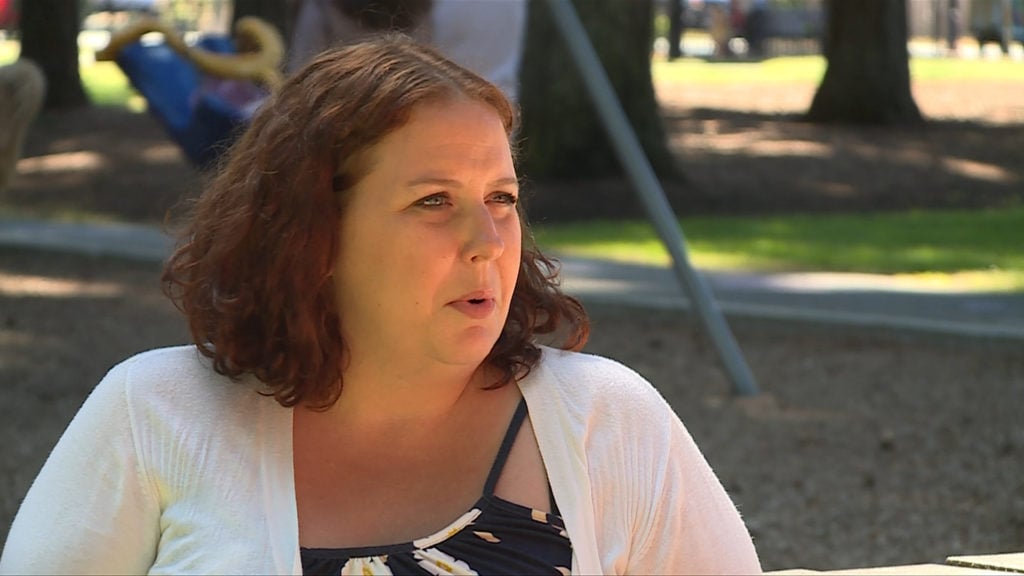
Warning: This story contains graphic descriptions of sexual assault.
Kelly Favro has been waiting six long years to say, “My name is Kelly and I’m a sexual assault survivor.”
In 2015 she was restrained against her will and violently sexually assaulted for two hours by someone she was casually seeing.
“I had marks on my wrists and my ankles. I was bruised, I had my underwear ripped,” said Favro. “I said no. I said no multiple times. I was screaming no. I said stop. He didn’t. He kept going.”
When her attacker Ken fell asleep, she was able to escape.
After a lengthy court battle, Favro’s assailant, who she doesn’t feel safe to fully publically name yet, was eventually convicted of sexual assault. But during the trial, she says prosecutors requested a publication ban without her knowledge.
Favro says she found out, five years into her court battle in December 2020.
“It’s now 2021, and now I’m only available to say my name and to share my story,” said Favro. “It shouldn’t have taken me six years to be able to sit down with somebody and say this is happening.”
Publication bans in sexual assault cases can be requested by either the crown prosecutor or complainant, not the defence. They are intended to protect survivors by shielding their identities.
Once they’re requested, the judge has no discretionary power, meaning the ban is mandatory, and immediately implemented when an application is made.
“But no one told me what it meant. I didn’t know what that entailed,” said Favro.
Advocates say it’s a common complaint. They say prosecutors aren’t consulting survivors.
“The problem is that prosecutors apply for a publication ban as a matter of course, and they’re not properly informing complainants that they have done so,” said Dr. Lise Gotell, women & gender studies professor with the University of Alberta.
In a statement to CHEK News, however, the B.C. Prosecution Service said although they couldn’t speak to why Favro had not been informed of the ban on her case, their priority is to keep survivors aware of their case.
“Our practice is to engage complainants early and often throughout the process so they are aware of these tools. These publication bans do not prevent the complainant from speaking about their experience. Only their identity is protected,” said the B.C. Prosecution Service in a statement. “In our experience, the majority of complainants welcome the protection of privacy afforded by the publication bans that are available
For Favro, she says the process took away her autonomy for a second time and feels revictimized by the justice system.
She feels the publication ban put in place without her consent, was actually protecting the name of the man who brutalized her.
“Anytime you looked up his name, google his name, nothing would come up. You could look him up on court services online. Nothing would come up. It’s like he did nothing,” said Favro.
Additionally, advocates also say the lengthy, complicated, expensive application process Favro and other survivors face when trying to remove the publication ban must change.
“A publication ban should only be put in place when the survivor explicitly consents to it, and there should be a simple procedure for removing a publication ban,” said Favro
After a long wait, this week, a B.C. Supreme Court judge removed the publication ban in Favro’s case.
“Having our name available and public isn’t a bad thing for women. It’s something that should scare the hell out of the people who attack us,” said Favro.
“I did this for my daughter. I did this for everyone else that has a story to tell.”
After six years, she is relieved to finally tell her story.
Silent no more.
“I’d like to hope my story is going to give somebody hope.”
READ MORE: B.C. expands fund by $10 million for sexual assault response
A previous version of this story stated defence could apply for a 486.4 publication ban. Only crown counsel or a complainant can apply. CHEK News regrets the error.




